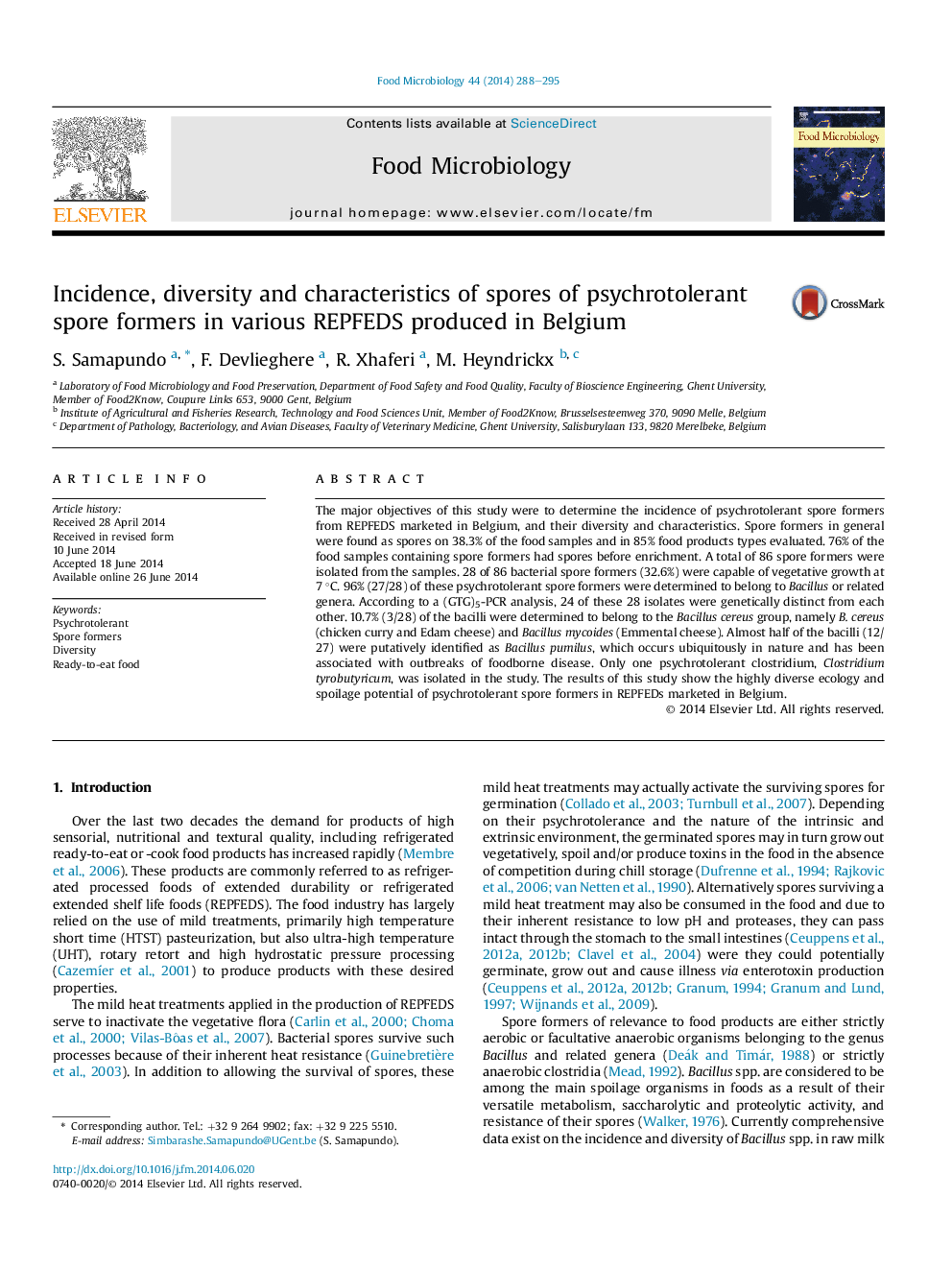| Article ID | Journal | Published Year | Pages | File Type |
|---|---|---|---|---|
| 6288697 | Food Microbiology | 2014 | 8 Pages |
â¢Incidence and diversity of spores in REPFEDS marketed in Belgium was evaluated.â¢Spores were detected on 38% (41/107) of the food samples evaluated.â¢33% (28/86) of the spore formers were capable of vegetative growth at 7 °C.â¢Almost half of the bacilli (12/27) were putatively identified as Bacillus pumilus.
The major objectives of this study were to determine the incidence of psychrotolerant spore formers from REPFEDS marketed in Belgium, and their diversity and characteristics. Spore formers in general were found as spores on 38.3% of the food samples and in 85% food products types evaluated. 76% of the food samples containing spore formers had spores before enrichment. A total of 86 spore formers were isolated from the samples. 28 of 86 bacterial spore formers (32.6%) were capable of vegetative growth at 7 °C. 96% (27/28) of these psychrotolerant spore formers were determined to belong to Bacillus or related genera. According to a (GTG)5-PCR analysis, 24 of these 28 isolates were genetically distinct from each other. 10.7% (3/28) of the bacilli were determined to belong to the Bacillus cereus group, namely B. cereus (chicken curry and Edam cheese) and Bacillus mycoides (Emmental cheese). Almost half of the bacilli (12/27) were putatively identified as Bacillus pumilus, which occurs ubiquitously in nature and has been associated with outbreaks of foodborne disease. Only one psychrotolerant clostridium, Clostridium tyrobutyricum, was isolated in the study. The results of this study show the highly diverse ecology and spoilage potential of psychrotolerant spore formers in REPFEDs marketed in Belgium.
